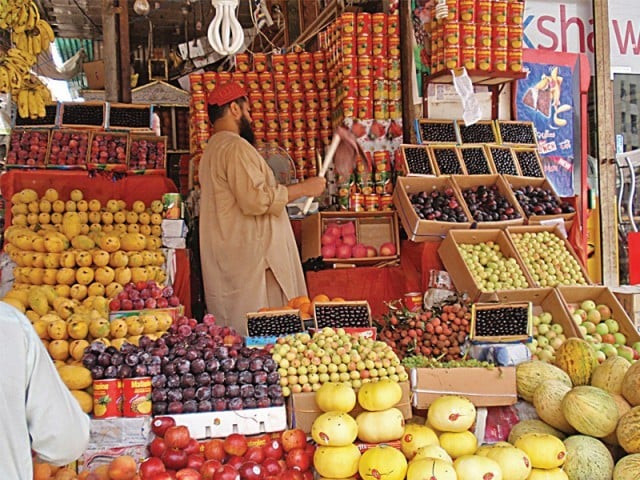Punjab plans to set up new 'farmers markets' under govt control
Traders, wholesalers oppose idea, warn it will trigger further surge in inflation

The Punjab government has resolved to abolish all vegetable and fruit markets, along with wholesale commission markets, in a bid to exert complete control over the prices of foodstuffs, essential commodities, vegetables, fruit and grocery items.
In their stead, new Chief Minister’s Farmers’ Markets will be established. These will be staffed by government inspectors working under the direct supervision of the Assistant Commissioner.
At these markets, every vehicle, trailer and container transporting vegetables, fruit, pulses, sugar and grocery goods will be formally registered upon entry. The authorities plan to bring the new markets into operation in the second half of December.
Under this decision, four fruit and vegetable markets and six wholesale markets in the Rawalpindi Division — and, across Punjab, a total of 42 fruit and vegetable markets and 70 wholesale commission markets — will be dismantled.
The new Chief Minister’s Farmers’ Markets will remain under the exclusive control of the government, with offices of the District Administration, the Price Control Magistrate and the District Price Committee, located on site. All inflows of goods, including supply and auctioning, will take place entirely under government supervision, effectively ending all private control.
Nevertheless, the President of the Vegetable Market Traders’ Association, Ghulam Qadir Mir, the Secretary of the Fruit Market, Sajid Khan, and the Vice-President of the Wholesale Market Traders, Shafiq Khan, have rejected the proposal. They urged the government to desist from such experiments and instead focus on sound governance, warning that such measures would trigger a surge in inflation.
They argued that, should the government genuinely wish to introduce reforms, it ought to establish parallel markets and allow them to compete with existing wholesale and fruit and vegetable markets, as improvement naturally follows competition.
They further observed that the government has failed to run the Utility Stores or the Sasti Roti scheme effectively; how, then, would it manage wholesale markets? According to them, the bureaucracy is attempting to engineer direct conflict between the government and the traders through such initiatives — a situation they vowed to resist.





















COMMENTS
Comments are moderated and generally will be posted if they are on-topic and not abusive.
For more information, please see our Comments FAQ